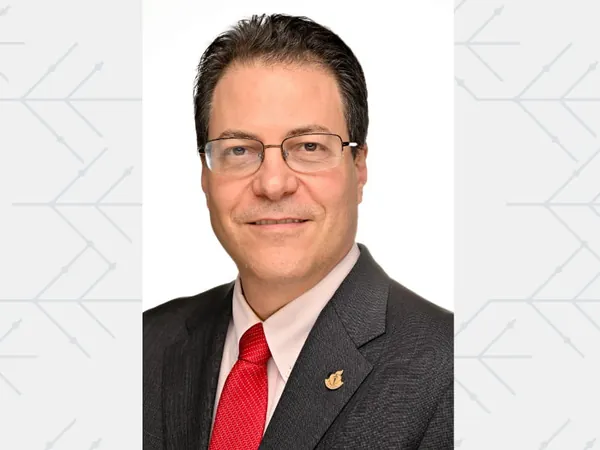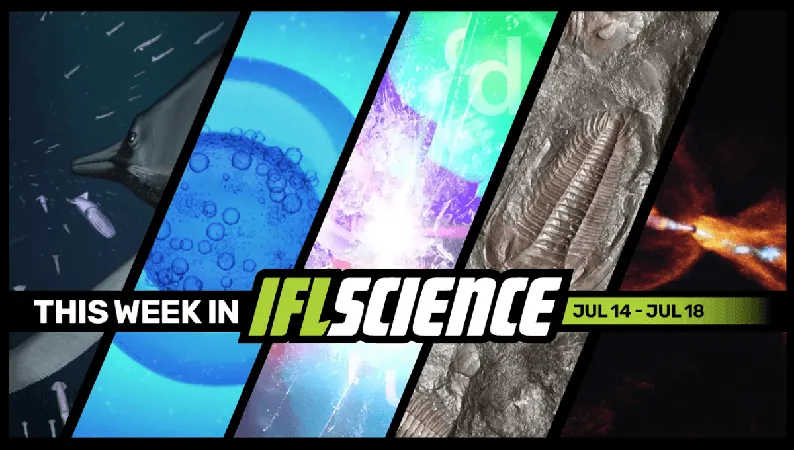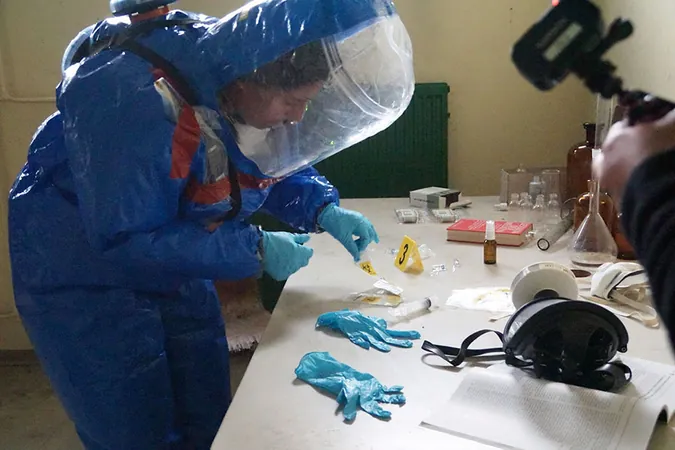
Meet the Trailblazer Bridging Hearts and Brains: Mitch Elkind's Inspiring Journey
2025-06-13
Author: Jia
From the bustling suburbs of New Rochelle, New York, Mitch Elkind once fantasized about being a creative writer or a journalist. But fate had other plans, steering him towards the intricate world of neurology.
"Growing up under the influence of my father, a headache specialist, I was surrounded by neurologists and neuroscientists," Elkind recalled. This early exposure ignited a passion for understanding the complexities of the mind and ultimately guided him toward a prominent career in neurology and epidemiology, backed by elite educations from Harvard, Cambridge, and Columbia.
Today, Elkind stands as a luminary in his field, serving as the former chief of the Columbia University Division of Neurology Clinical Outcomes Research and Population Sciences. In 2020, he made history by becoming only the second neurologist to assume the presidency of the American Heart Association (AHA), following in the footsteps of his mentor, Dr. Ralph Sacco.
Elkind's journey with the AHA began in 1996 when he became a fellow under Sacco. He was immediately captivated by the organization's mission, particularly after meeting Bert Scott, who had been deeply affected by the loss of his wife to a stroke.
Inspired by Scott's passion and personal loss, Elkind became the inaugural recipient of the Kathleen Scott Research Fellowship, which propelled his research on stroke risks, enhancing his commitment to the AHA.
His tenure with the organization has been nothing short of transformative. As he ascended the ranks—from the AHA's New York City board to national leadership—he spearheaded crucial initiatives, including the landmark AHA/ASA Scientific Statement on strokes and innovative simulation resources to educate healthcare professionals.
Recognized for his remarkable service, Elkind is set to receive the 2025 Gold Heart Award, the AHA's highest honor for volunteers, at the National Volunteer Awards ceremony in Plano, Texas, on June 17.
When Elkind became president in mid-2020, he aimed to forge stronger connections between heart and brain health. However, the onset of the COVID-19 pandemic forced him into uncharted territory as he became a key leader in the AHA's COVID-19 response, adapting to the immediate health crises that arose.
Despite initial concerns about the disconnect between infectious diseases and the AHA’s core mission, Elkind recognized the underlying links. "Even routine infections can trigger inflammatory responses that lead to cardiovascular complications," he explained, drawing on two decades of research.
His leadership during this unpredictable time shed crucial light on the intersection of COVID-19 with cardiovascular and neurological health. He was instrumental in distributing quick-response grants and emphasizing the importance of healthcare initiatives, including the widely recognized "Don't Die of Doubt" campaign.
As his presidency evolved, so did his influence. Elkind launched initiatives to encourage routine health check-ups post-lockdown, with impactful social media campaigns resonating widely and significantly reducing medical appointment delays.
Under his stewardship, the AHA solidified its commitment to scientific research and innovation, focusing on health disparities in women and expanding cardiology's reach through initiatives like Research Goes Red, aimed at improving understanding of heart diseases that uniquely affect women.
Motivated by a desire to continue making a significant impact, Elkind transitioned to a key role on the AHA staff in 2022 as chief clinical science officer, where he collaborates with government entities like the FDA.
His role has recently evolved into chief science officer for brain health and stroke, aligning with his pre-pandemic vision while pushing the AHA's mission forward in advocacy and education.
Elkind views the upcoming Gold Heart Award—not as a personal achievement, but as recognition of the critical connection between brain and heart health. "What’s beneficial for one is beneficial for the other," he affirmed, expressing his joy in collaborating with fellow honoree Bert Scott.




 Brasil (PT)
Brasil (PT)
 Canada (EN)
Canada (EN)
 Chile (ES)
Chile (ES)
 Česko (CS)
Česko (CS)
 대한민국 (KO)
대한민국 (KO)
 España (ES)
España (ES)
 France (FR)
France (FR)
 Hong Kong (EN)
Hong Kong (EN)
 Italia (IT)
Italia (IT)
 日本 (JA)
日本 (JA)
 Magyarország (HU)
Magyarország (HU)
 Norge (NO)
Norge (NO)
 Polska (PL)
Polska (PL)
 Schweiz (DE)
Schweiz (DE)
 Singapore (EN)
Singapore (EN)
 Sverige (SV)
Sverige (SV)
 Suomi (FI)
Suomi (FI)
 Türkiye (TR)
Türkiye (TR)
 الإمارات العربية المتحدة (AR)
الإمارات العربية المتحدة (AR)